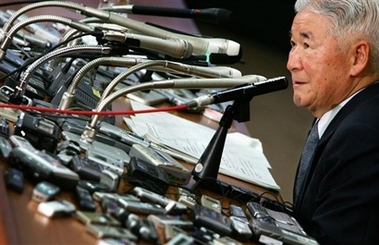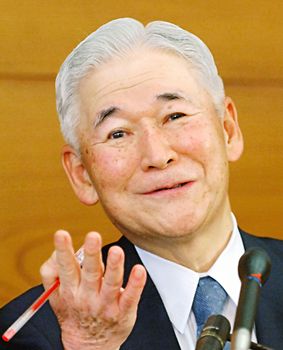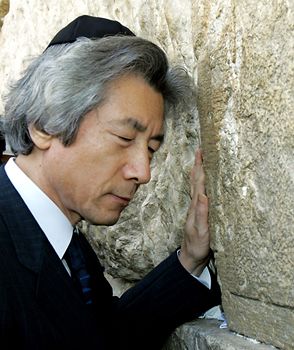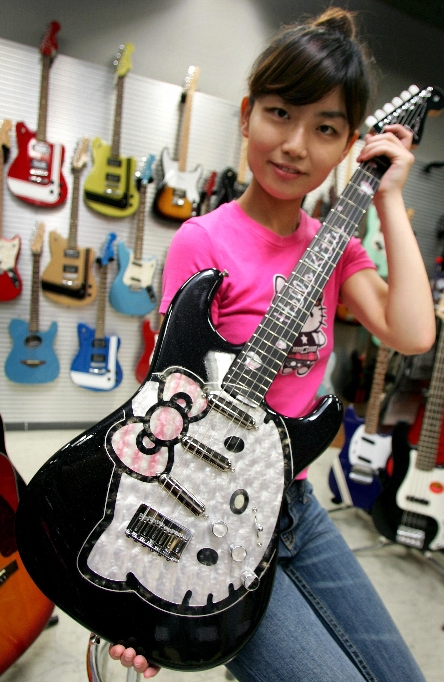Yesterday, Russian rikishi Roho was easily tossed out of the sumo ring by Chiyotaikai (video). As usual, Roho looked like he was about to rip someone a few new assholes. Unfortunately, he wasn’t messing around this time:
Still heated, Roho smashed a bathroom glass window on his way back to the dressing room and after receiving a reprimand from the JSA judging committee, proceeded to attack the photographers who were trying to take his photo.
“Violence toward field reporters is truly shameful and unforgivable for a sportsman,” the Mainichi Shimbun said in a statement.
Exactly what triggered the exchange is unclear but both Roho and Chiyotaikai received warnings from JSA Chairman Kitanoumi. The Russian wrestler later said that Chiyotaikai made a derogatory comment after the bout that set him off.
Roho will forfeit his bout against ozeki Tochiazuma Sunday and have two rest days.
Let’s see him try to get into an onsen now…





